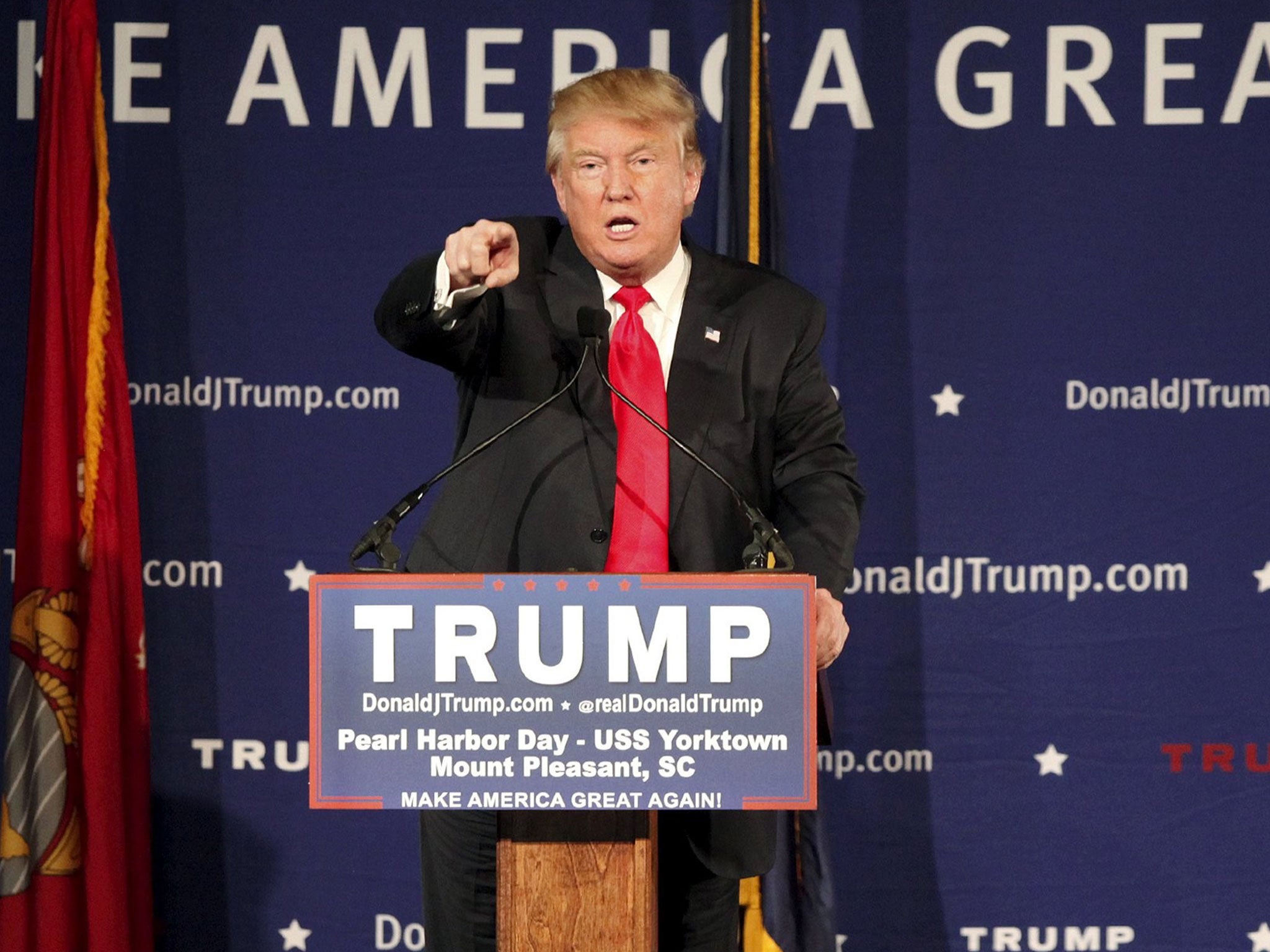Why Donald Trump's proposed ban on Muslims is helping Isis

Your support helps us to tell the story
From reproductive rights to climate change to Big Tech, The Independent is on the ground when the story is developing. Whether it's investigating the financials of Elon Musk's pro-Trump PAC or producing our latest documentary, 'The A Word', which shines a light on the American women fighting for reproductive rights, we know how important it is to parse out the facts from the messaging.
At such a critical moment in US history, we need reporters on the ground. Your donation allows us to keep sending journalists to speak to both sides of the story.
The Independent is trusted by Americans across the entire political spectrum. And unlike many other quality news outlets, we choose not to lock Americans out of our reporting and analysis with paywalls. We believe quality journalism should be available to everyone, paid for by those who can afford it.
Your support makes all the difference.The latest rhetorical barrage from presidential candidate Donald Trump came on Monday evening, when the Republican front-runner called for a "total and complete shutdown" of the entry of Muslims to the United States “until our country's representatives can figure out what is going on.”
That demand — as sweeping as it is incendiary — led to a firestorm on social media as well as condemnation from his political rivals. Whether it proves fatal for Trump's electoral chances is another question.
The billionaire bombast has clearly tapped into a rich vein of nativism that animates the Republican base, and is pandering to fears over immigration and Islamist infiltration in the wake of the Nov. 13 Paris terror attack and last week's shooting in San Bernardino.
Polls suggest these fears are widespread:
The central focus of these concerns is Isis, the extremist militant group whose rise amid political chaos in Iraq and Syria has shocked the world. The spectre of jihadist violence has led to some politicians in the West placing a blanket veil of suspicion over refugees, migrants and Muslims writ large. This, others argue, is a recipe for further dangerous polarization.
Last month, the Washington Post's Adam Taylor noted that the Islamic State actually wants you to hate refugees:
If Muslim refugees come to Europe and are welcomed, it deeply undercuts the Islamic State's legitimacy. ... What seems almost certain is that the Islamic State wants you to equate refugees with terrorists. In turn, it wants refugees to equate the West with prejudice against Muslims and foreigners.
One of the more striking calls for calm that came in the wake of the horrific night of terror in Paris was from Nicolas Henin, a French journalist who had been held captive by Isis for 10 months. In an op-ed published in the Guardian, he explained that the jihadists thrive off this sense of civilizational struggle with non-Muslims:
With [Isis's] news and social media interest, they will be noting everything that follows their murderous assault on Paris, and my guess is that right now the chant among them will be “We are winning.“ They will be heartened by every sign of overreaction, of division, of fear, of racism, of xenophobia; they will be drawn to any examples of ugliness on social media.
Central to their world view is the belief that communities cannot live together with Muslims, and every day their antennae will be tuned towards finding supporting evidence. The pictures from Germany of people welcoming migrants will have been particularly troubling to them. Cohesion, tolerance – it is not what they want to see.
Trump is not exactly aiding the cause of “cohesion” and “tolerance.” The knee-jerk xenophobia of the US election cycle may have its domestic political uses. But its wider impact could be far more dangerous than what any presidential candidate may fathom.
Copyright: Washington Post
Join our commenting forum
Join thought-provoking conversations, follow other Independent readers and see their replies
0Comments